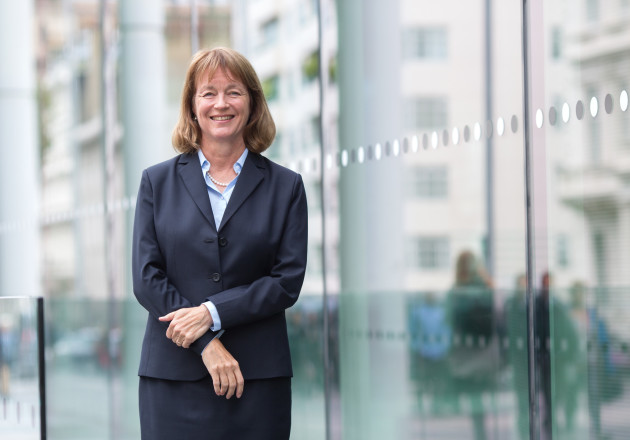Navigating successful change through research, education and innovation
 As the philosopher Heraclitus noted: “Change is the only constant in life." Each generation has faced and adapted to change, and the pandemic changed our lives and the world in which we live in. Imperial College London navigated these difficult times with strength, courage and a tremendous amount of teamwork, and we are inspired by the accomplishments, fortitude and resilience of our community.
As the philosopher Heraclitus noted: “Change is the only constant in life." Each generation has faced and adapted to change, and the pandemic changed our lives and the world in which we live in. Imperial College London navigated these difficult times with strength, courage and a tremendous amount of teamwork, and we are inspired by the accomplishments, fortitude and resilience of our community.
One thing we know now is that, when we have to, we can change rapidly. When we had to move our work online, our highest priority was to provide our students with an excellent education. Our colleagues went above and beyond to ensure that learning outcomes were met and experiences – online, at home and on campus when possible – were the best they could be. Our students registered their satisfaction and appreciation in their responses to the National Student Survey.
I’m confident that Imperial will continue to improve the world for everyone"
Our research and innovation also pivoted to doing everything possible to understand and mitigate the disease. From epidemic modelling and making hand sanitiser to new tests, treatments and vaccine platforms, Imperial has been there for the community, the UK and the world. For this, we were named University of the Year 2022 by The Times and The Sunday Times. In these pages you will see the ways we are navigating the changes ahead and how we contribute to society.
Our Professor of Digital Strategy, Professor Christopher Tucci, forecasts significant change, saying, “There’s no type of business that will be untouched by digital transformation”. He counsels looking at the big picture and planning ahead. While “no one likes change”, we can and must adapt to technology for the future.
Perhaps the biggest challenge we face is climate change. In the wake of COP26, we hear from a diverse group of researchers affiliated with Imperial’s Grantham Institute about their work to decarbonise society. Changing the way we make things, changing how we work, use resources and integrate our efforts across systems such as waste, supply, climate processes and infrastructure are all necessary if we are to succeed. Technological advances need to go hand-in-hand with societal changes. As Drew Pearce points out, there is a need to marry engineering novelty with the real on-the-ground approach of how people will use it.
Changing how we design materials and medical devices is improving the quality of life for patients. Notice our inspiring alumnus making devices to stabilise the hands of Parkinson’s patients. Read about the human touch Aldo Faisal, Mirko Kovac, Thrishantha Nanayakkara and their colleagues are bringing to soft robotics. Changing the paradigm for the way humans and machines interact is transforming medical interventions and education.
Medics and engineers collaborate at Imperial with great results. The Sir Michael Uren Hub in our White City Campus brings these communities together better than ever. The pandemic accelerated the rate of invention and innovation as you will see in Professors Charles Coombes’ and Chris Toumazou’s optimism about their ability to “interrogate the blood” of breast cancer patients and deliver the most effective treatment.
Finally, for a bit of inspiration about how brilliant ideas are borne out of thinking, discussing, reading and collaborating, be sure to savour the compelling story of Professor Sir Martin Hairer and his breakthrough in stochastic partial differential equations.
Change is upon us whether we like it or not. As an optimist, I look positively towards the future. Everyday stories like those in this magazine buoy my spirits. A heart-warming story of outreach to our community, an accolade for a younger colleague, a transformational research discovery, an exciting entrepreneur with a good idea or an inspiring student design project making a difference to the world; these all make me confident that Imperial College London will continue to improve the world for everyone.
A major change will occur next summer when my successor, Professor Hugh Brady, takes on the role of President. It is a privilege to lead Imperial and I am pleased to be handing over an inspiring and excellent institution to a leader of his calibre. In the meantime, we have opportunities to seize and changes to adapt to. I know that we will navigate those changes ahead with the collaborative spirit that makes us so successful.
Professor Alice Gast is President of Imperial College London and is an internationally renowned academic leader and researcher.